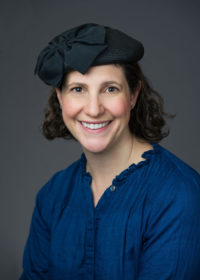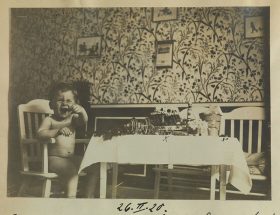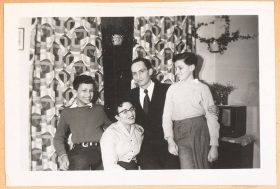An Interview with Rabba Sara Hurwitz

Rabba Sara Hurwitz; photo: Poppy Studio
In 2009 Rabba Sara Hurwitz became the first Orthodox woman to be ordained at the Hebrew Institute of Riverdale. In the same year, together with Rabbi Avi Weiss, she founded Yeshivat Maharat, the first Orthodox seminary to ordain women as clergy—full spiritual and halakhic leaders. Today, Yeshivat Maharat offers a dynamic group of women the opportunity to become ordained clergy within the bounds of halakha. It is not surprising that, when asked about which revolution she admires, Rabba Hurwitz’s answer is: “The women’s liberation movement, especially in the 1960s and 70s, which helped the world come to terms with the notion that 50 percent of the population‒‒women‒‒have equal abilities, talents, and passion to contribute to society.”
We asked her about female spiritual leaders, the #metoo movement, and the digital revolution: → continue reading
Fritz Scherk and the history of a family business in Berlin

Fritz Scherk on his second birthday, Berlin, May 26, 1920; Jewish Museum Berlin, gift of Irene Alice Scherk, photo: Jens Ziehe
A beaming toddler sits naked on a lavishly laid birthday table, apparently having the time of his life. A photo like this could easily have been taken today, I thought, when I saw it in the diary that Ludwig and Alice Scherk kept for their son Fritz. In fact, the happy child would have turned 100 today. Being born in 1918 didn’t exactly promise a peaceful life, especially not for a member of a German-Jewish family. Actually the family’s second child had been planned for 1916, three years after the birth of their first son, but the outbreak of war got in the way. But on May 26, 1918, the time had come: Fritz was born next to his mother’s Bechstein piano—by candlelight because of the war, and just two minutes away from his parents’ business, the Scherk Perfumery on Kurfürstendamm. → continue reading
The sixth and final installment in our blog series “Memories from the Life of Walter Frankenstein”

The Frankenstein family in their apartment, Bandhagen (outside of Stockholm), around 1956–1957; Jewish Museum Berlin, gift of Leonie and Walter Frankenstein
To start from the beginning again: when I consider the path that Walter Frankenstein and his family took, I’m constantly astonished that they didn’t lose hope and always found new strength to confront the numerous changes in their lives. In 1956, the final big challenge in the lives of the four Frankensteins got underway.
→ continue reading


